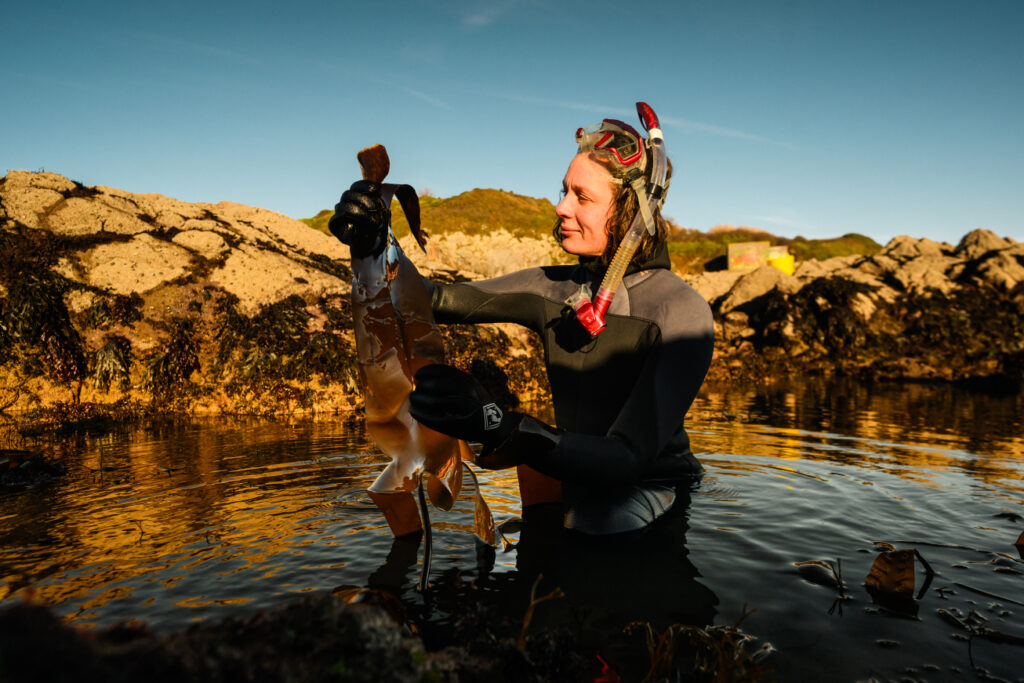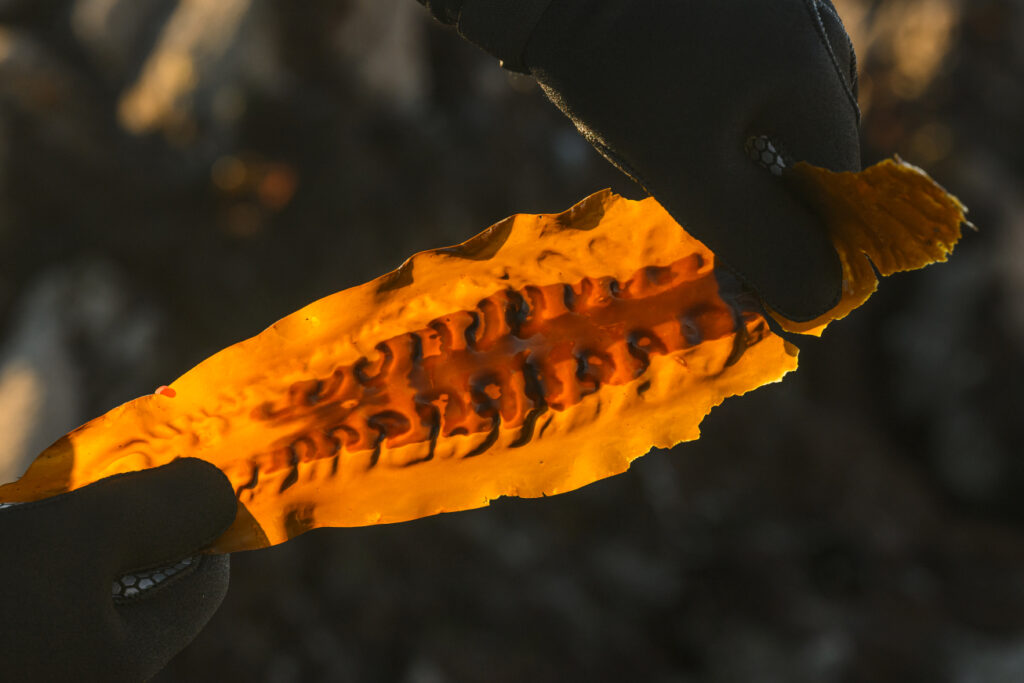

Scientists at the Marine Biological Association (MBA) and Newcastle University have begun trials to progress an active kelp restoration technique for four species of native kelp (Order Laminariales), using test sites in Devon and Teesside. The fundamental goal of the project is to develop a system for restoring degraded kelp forests using a low-cost, scalable, and practical solution, whilst bridging the gap between marine conservation and the fishing and seafood industry. The project has been generously funded by the Marine Management Organisation, Fishmongers’ Company’s Fisheries Charitable Trust, Newcastle University, Seafarers Charity, Marshall Wace, Devon Environment Foundation, and the Dixon Foundation.

Kelp forests form vital marine ecosystems, support high levels of biodiversity, primary productivity and underpin a range of core ecosystem services. However, kelp beds are declining across the world, with losses stemming from a variety of physical and biological factors such as climate change, decreases in water quality, coastal development, overgrazing, overharvesting, pollution.
The UK and Ireland represent an important area for kelps, with 7 different species found along ~19,000 km of the UK’s coastline. Kelp habitats support vital important ecosystem services, including fisheries habitats, biogenic coastal protection, nutrient cycling and carbon uptake and storage. Losses or shifts in the structure of kelp forests in the UK could have significant consequences for marine ecosystems and the services they provide to coastal communities. While much research has focused on coral, mangrove and seagrass restoration, far less attention has been given to kelp forests, despite their huge ecological and socioeconomic importance.
This restoration project, which is the first of its kind in the UK, will use controlled laboratory conditions to grow native kelp species using fertile ‘sorus’ material (seed) obtained from local donor plants. Kelp spores will be extracted and seeded onto local gravel substrates. Trials will also assess the feasibility of using scallop shells as a restoration substrate, with the objective of also reducing scallop shell landfill waste. Once juvenile kelp plants have grown large enough (~1cm long), the substrates and kelp will be out-planted at sea. The restoration method is known as the ‘green gravel’, which was pioneered by Fredriksen et al in Norway. The project has been working closely with the fishing communities through the North East Fishing Collective / Whitby Fishing Association and Plymouth Fishing and Seafood Association. The ambition is that the fishing fleet will support the out-planting activities on an ongoing, paid basis.

Since November, the MBA and Newcastle University have been doing exploratory cultivation trials of two kelp species, Laminaria digitata and Saccharina latissima. To start the trials, the MBA set up a dedicated controlled temperature room with tanks, pipework, racking, filtered seawater, UV sterilization, and specialist lighting. To optimise seeding methods, tests are comparing the success of seeding with both spores and microscopic gametophyte life stages. A pilot trial at the MBA was also recently started to assess kelp settlement density, growth rate and attachment strength on both sides of scallop shells, using flat, concave and crushed shells. Seeding success and follow-on growth will be monitored for eight weeks and will inform subsequent substrate trials.
As part of the project, the MMO, FCFCT and Newcastle University are also funding a PhD student, Cat Wilding, to develop the ‘green gravel’ research. Cat has worked as a scientist at the MBA for the past 6 years, and will continue her studentship based at the MBA, in partnership with Newcastle University as the host.